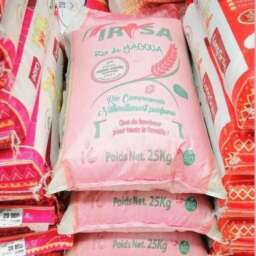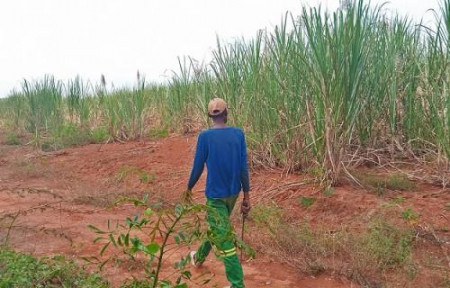(Business in Cameroon) – Work has resumed at Cameroon Sugar Corporation (Sosucam), but the situation remains far from normal after a strike by sugarcane cutters disrupted operations during the crucial harvest period. The work slowdown continues, and there are still significant challenges in fully restarting production.
According to union representatives interviewed by Business in Cameroon, the sugarcane cutting operations are still running at a reduced pace. “Work hasn’t fully resumed,” one union leader explained.
At Sosucam’s largest site in Nkoteng, operations are only partially back on track. “Of the 1,026 cane cutters expected in the fields, only 533 have returned to their posts,” said an internal company source, indicating a 52% attendance rate. In other words, 493 workers (48%) are still missing, since the strike began on February 8.
The situation is better at the Mbandjock site, where 800 of the 850 workers have resumed work after the strike, according to the same source.
Regarding the absences, Théophile Aluna Mvehe, president of the Confederation of Trade Unions of Cameroon (CSTC) at Sosucam, explained that some workers chose to go home, disheartened by the lack of satisfactory responses from management to their demands.
Most of the sugarcane cutters at Sosucam come from the Far North region of Cameroon, especially from the Mayo-Danay department. Known for their endurance, they make up the majority of the workforce at the sugar sites.
The partial resumption is also linked to workers’ demands for the release of their colleagues arrested during the protests on February 3 and 4 in Mbandjock and Nkoteng. According to a union member, several stores were looted during the riots, leading store owners to file complaints against the cane cutters, which resulted in multiple arrests.
The unions are concerned that the sugar campaign has already been heavily disrupted, and they fear it will negatively impact the company’s results for the year.
On its LinkedIn page, Sosucam highlights the resumption of work at the Mbandjock and Nkoteng sites, posting images and videos with triumphant captions. “Back in business!” reads one of their posts. “Our teams are mobilized for a dynamic resumption of activities at our sites. Together, let’s move forward for sustainable and efficient sugar production,” another post announces.
Indeed, workers have returned to the factories, and the machines are back up and running after about two weeks of inactivity. “The crushing season is in full swing at our sites! We are doing everything we can to provide you with 100% Terroir sugar, crafted with our expertise and passion,” Sosucam communicated.
The strike by Sosucam’s sugarcane cutters began on January 25, triggered by a delayed salary advance from two mobile phone operators. This led to riots, culminating in violent clashes between the workers and law enforcement on February 3 and 4. The aftermath was severe: one worker was killed, many others were injured, several shops were vandalized, around 150 hectares of sugarcane were burned, and Sosucam’s equipment was damaged.
On February 7, after a meeting with stakeholders in Nkoteng, Sosucam’s management agreed to raise the base salary for sugarcane cutters from CFA56,000 to CFA57,000, along with increases in health and dirtiness allowances. However, these increases were deemed insufficient by the workers, who are demanding a base salary of CFA105,000.
Sosucam, Cameroon’s leading sugar producer, was founded in 1965 and is 74% owned by French investors and 26% by the government of Cameroon. The company claims to provide 8,000 direct and indirect jobs, with an annual payroll of CFA14 billion. Despite its strategic position in the market, Sosucam is facing difficulties in meeting the national demand, which is about 300,000 tons per year, often forcing the government to authorize sugar imports to fill the gap.



































